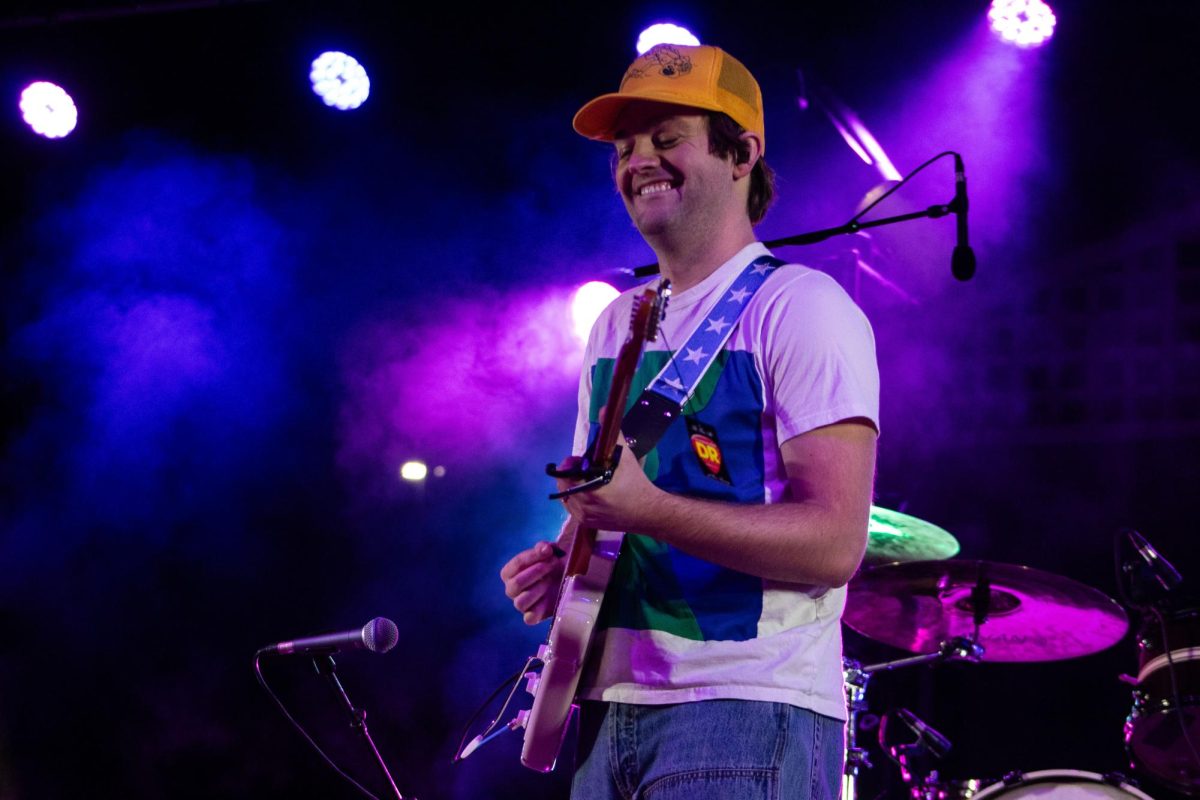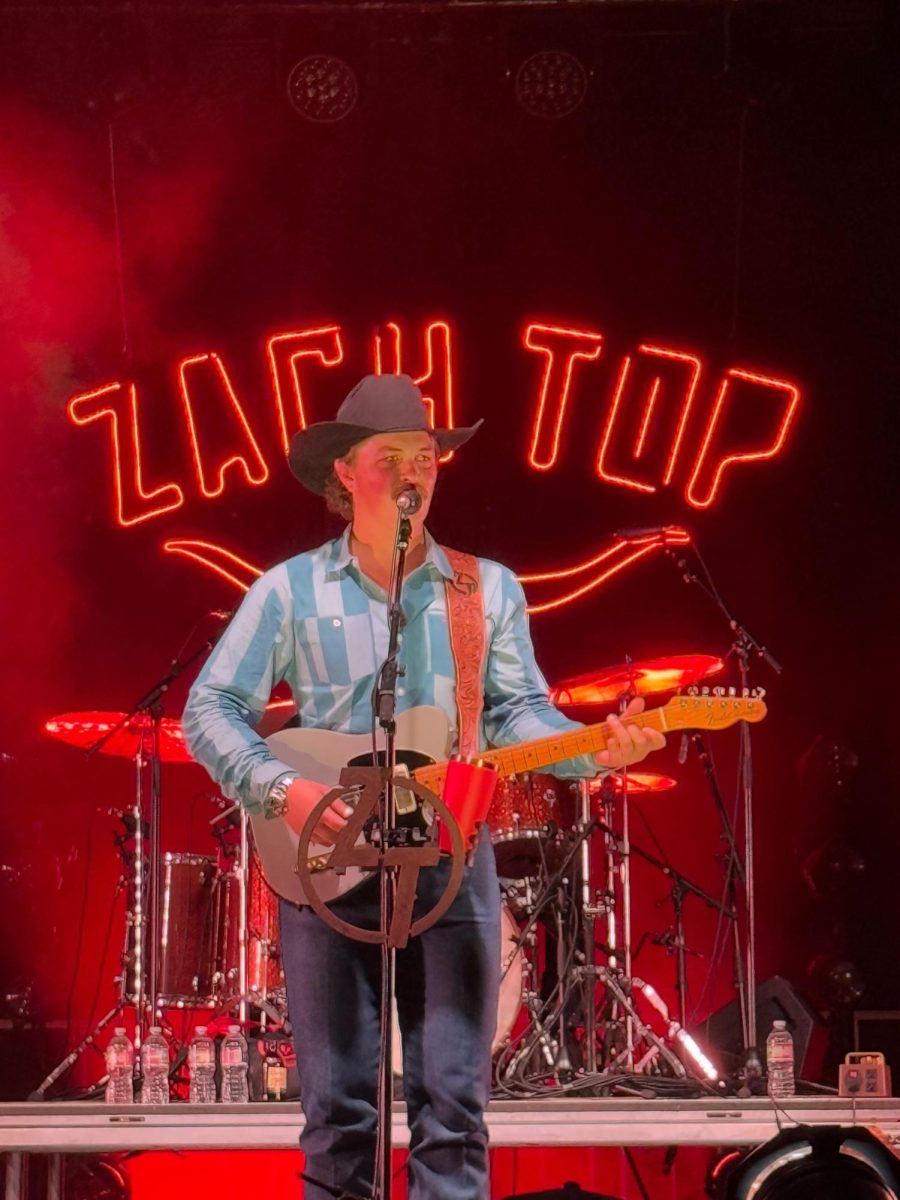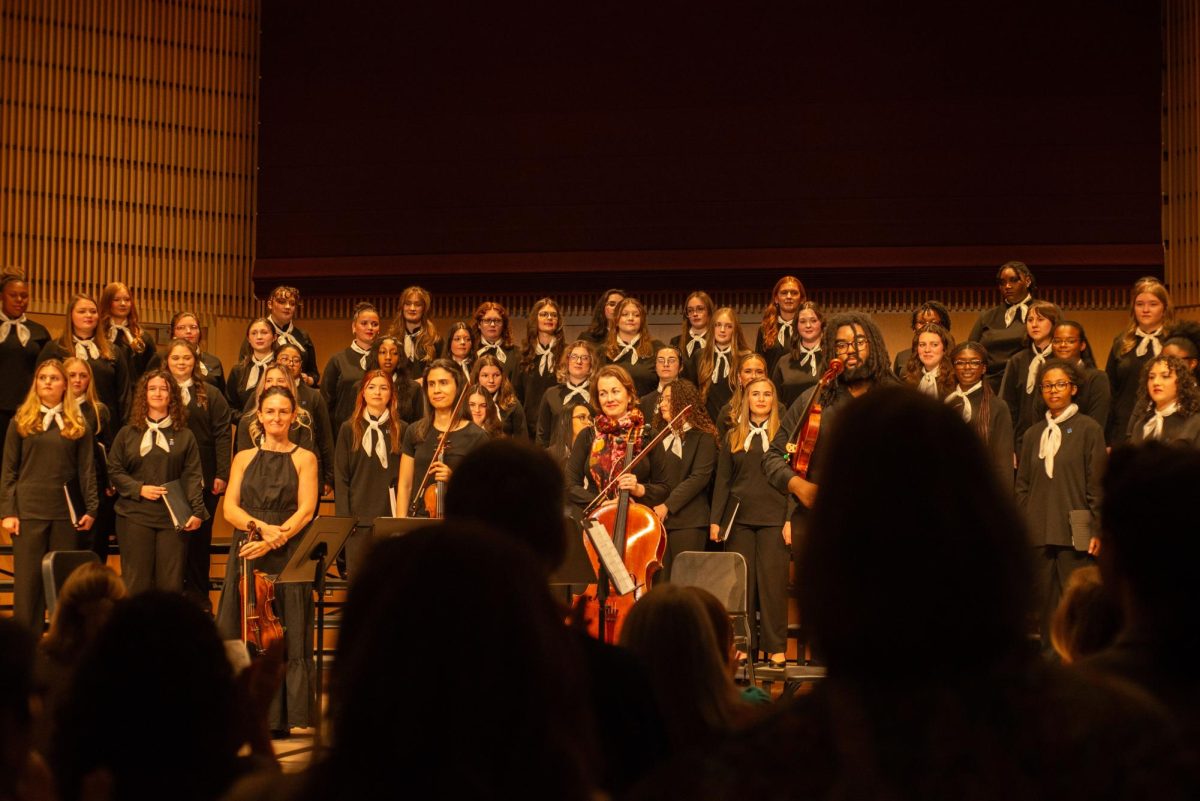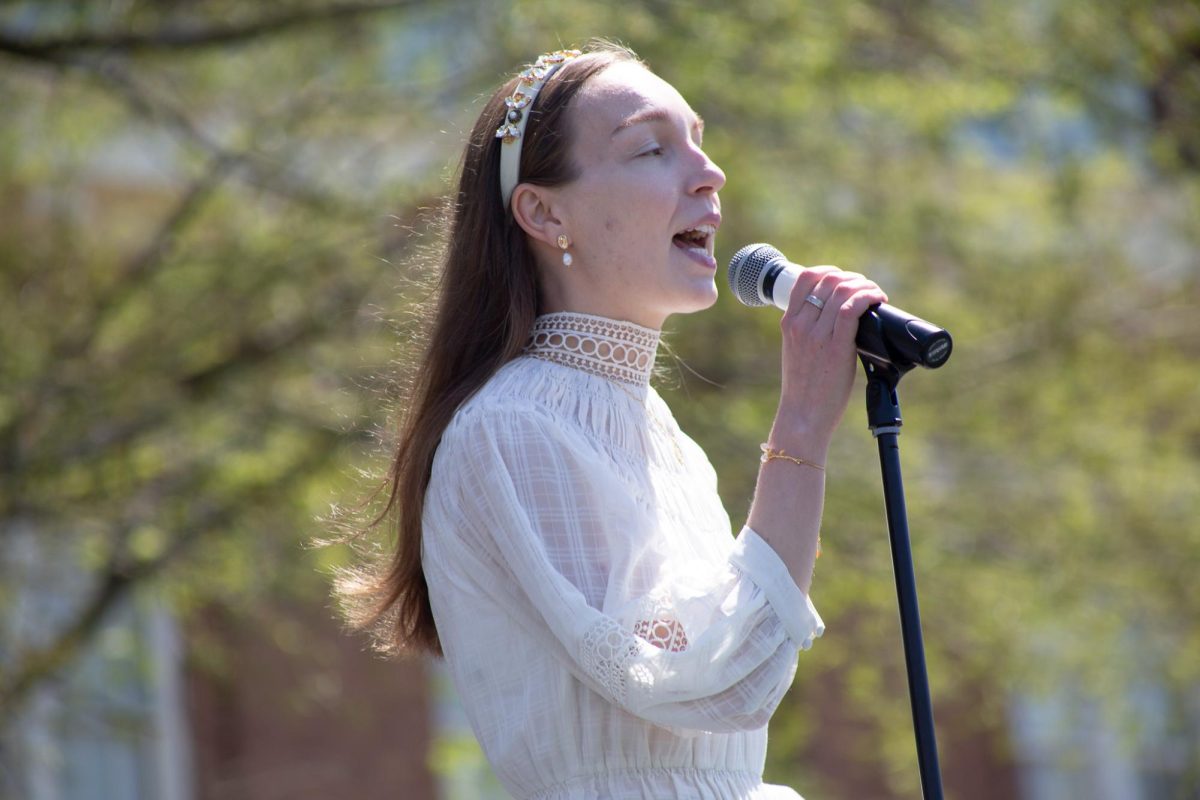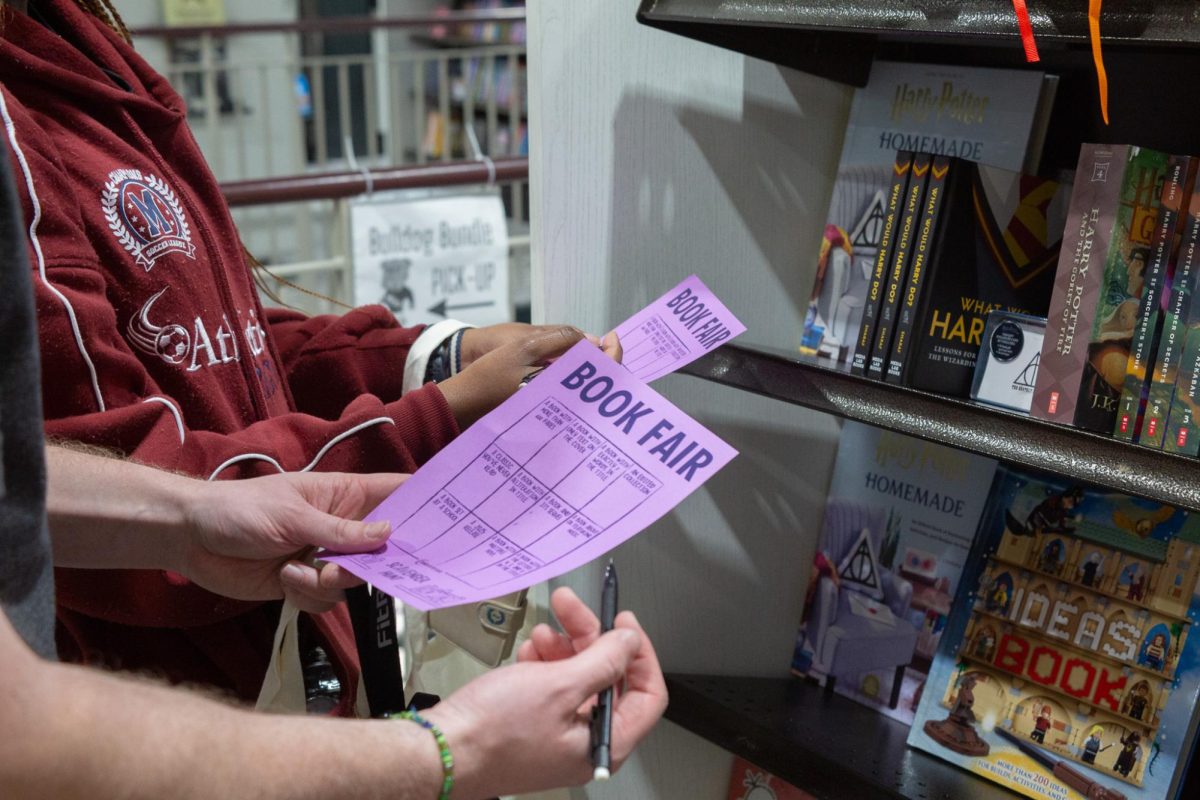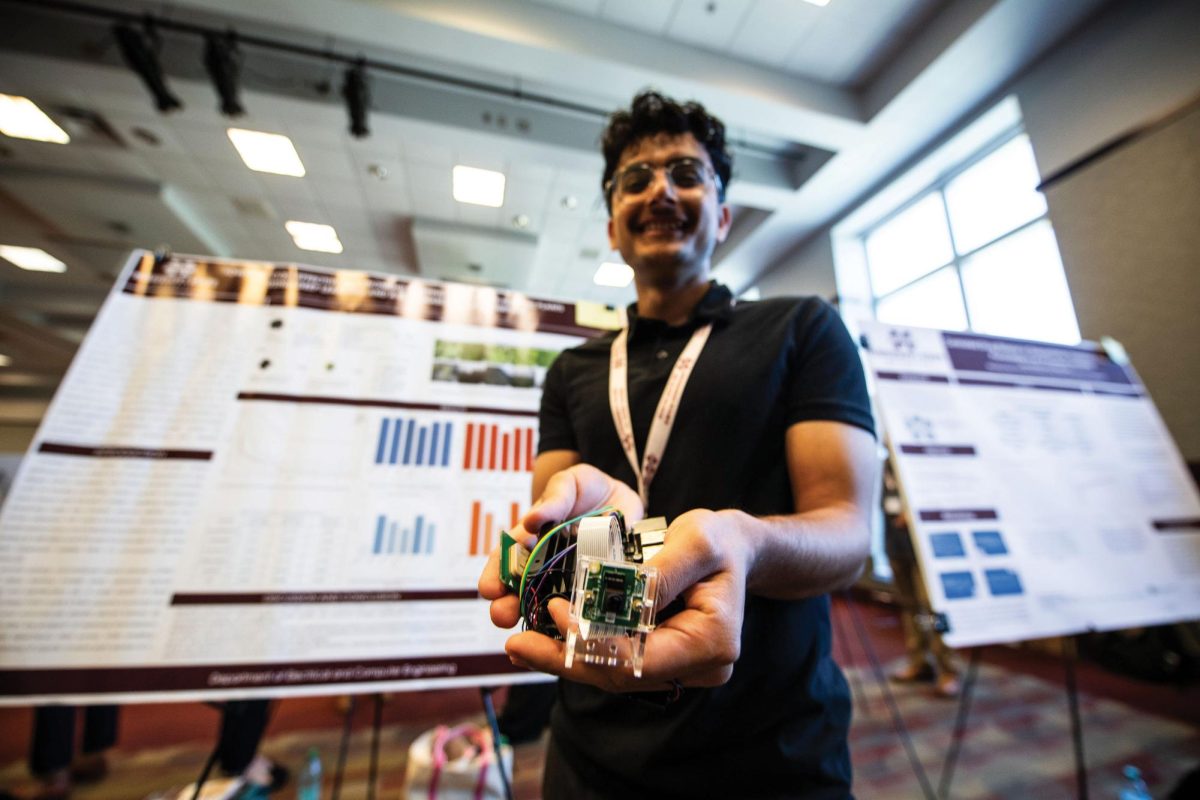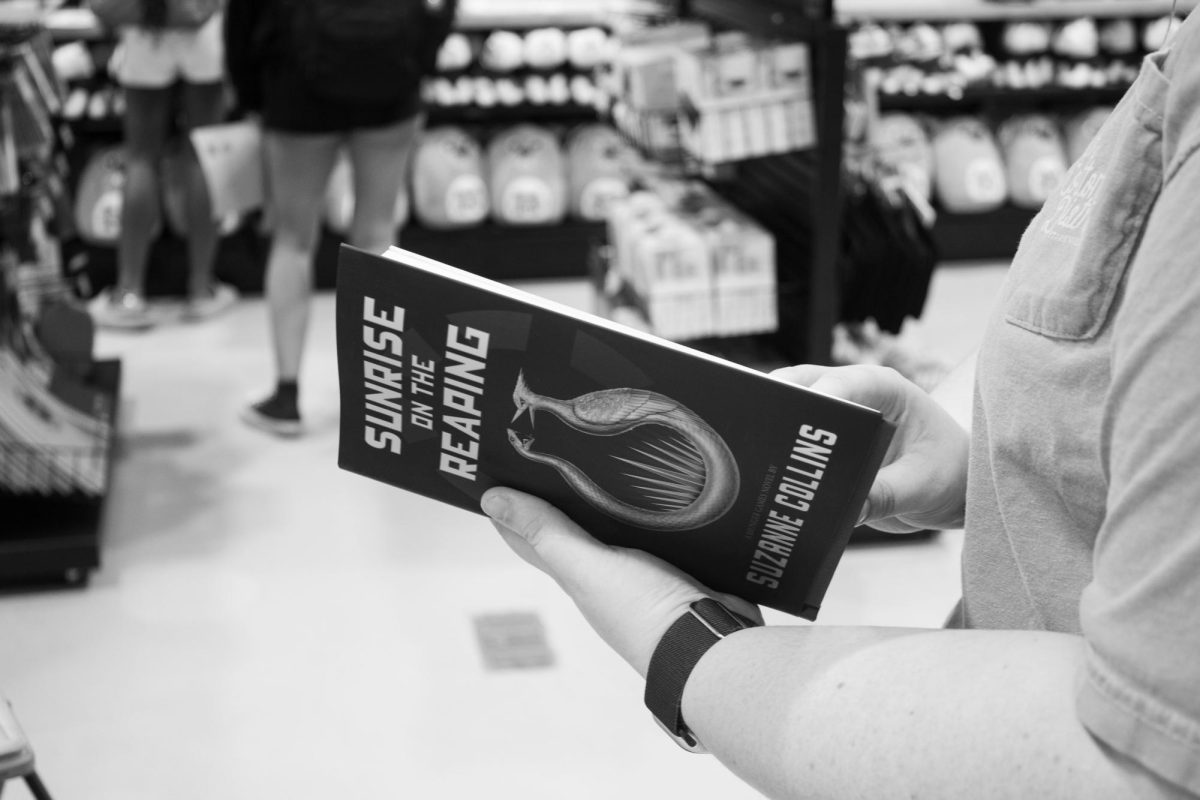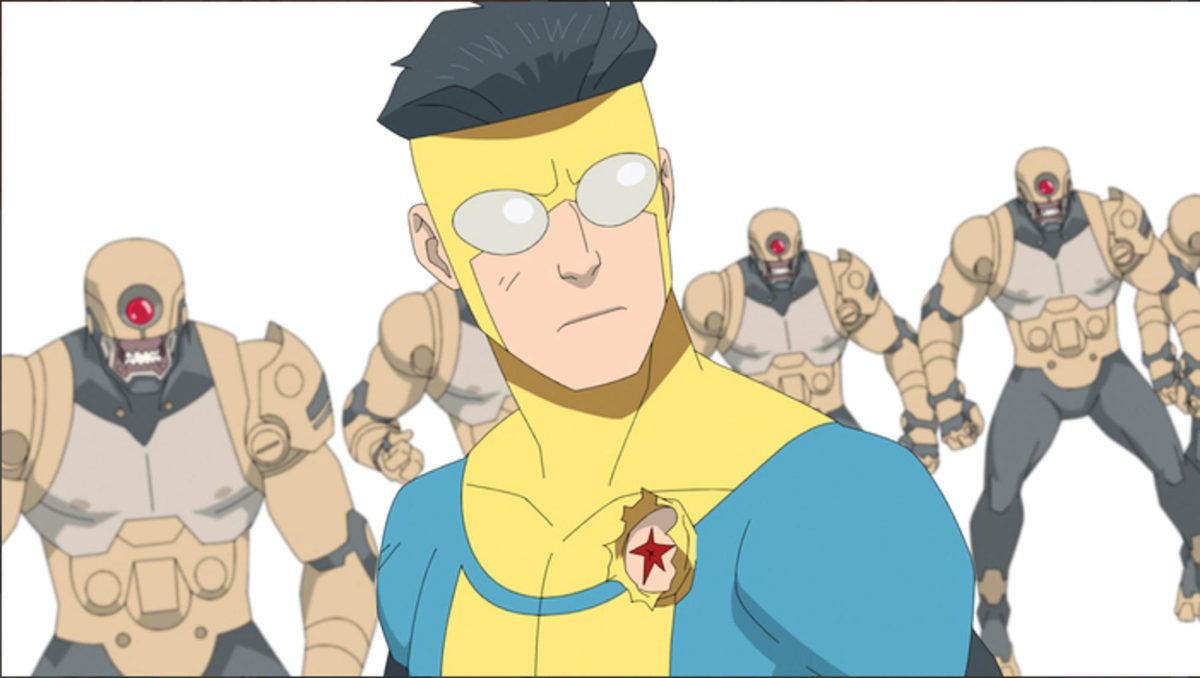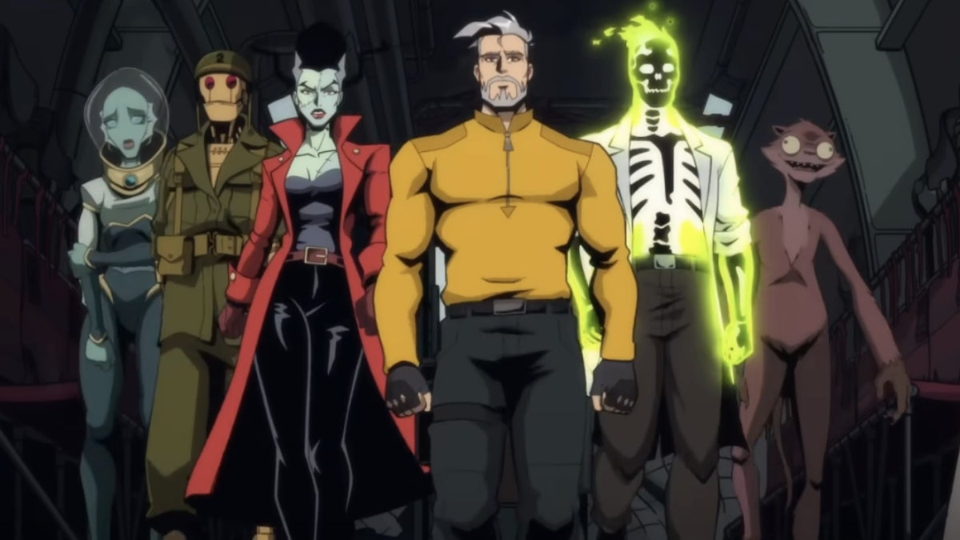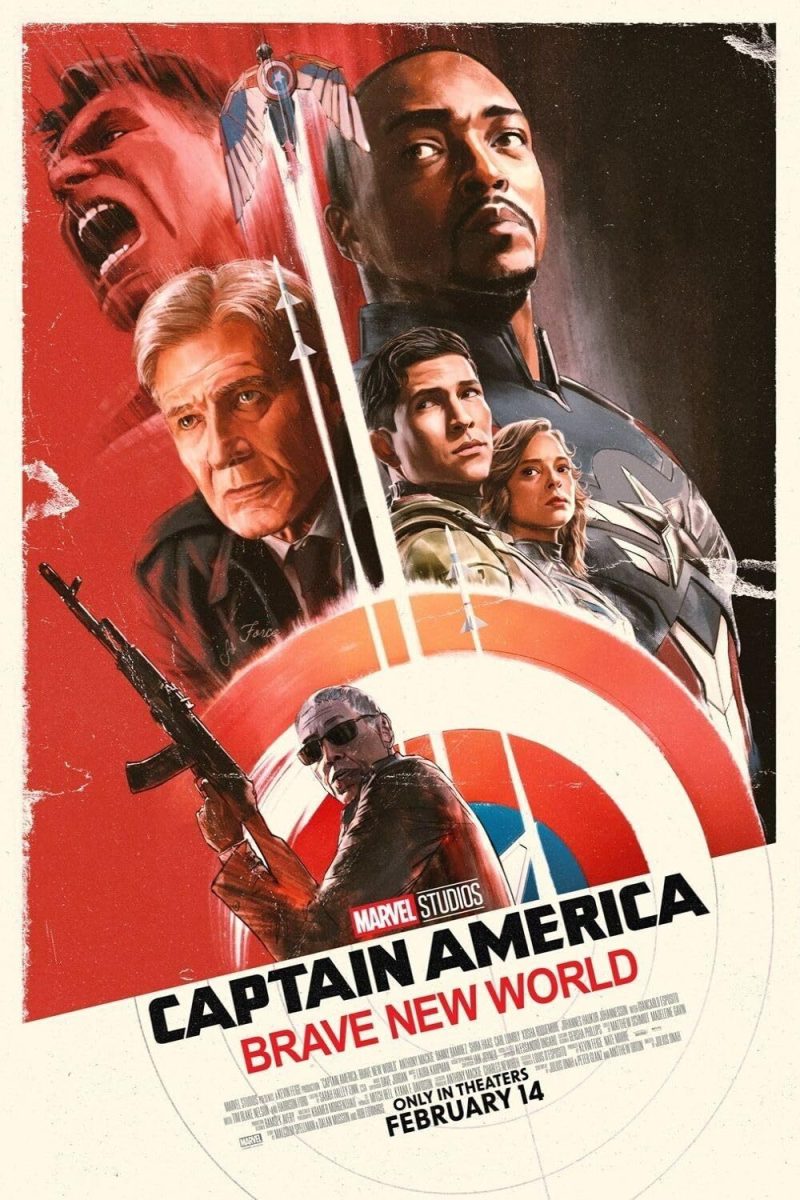“We know that when things change overtime, especially when they change in large ways, that it is telling us there has been a significant shift in the way human society is organized,” Robert L. Kelly said.
On Tuesday night in the McComas Hall Theater, Kelly explained how understanding the past can help predict the future. Kelly is an archaeologist and a professor of anthropology at the University of Wyoming. This event was free and open to the public.
At this event, which was a part of the Distinguished Lecture Series promoted by Mississippi State’s Institute for the Humanities, Kelly highlighted his book, “The Fifth Beginning: What Six Million Years of Human History Can Tell Us about Our Future.”
His book, which was published by the University of California in 2016, won the 2018 Felicia A. Horton Book Award from the Archaeological Institute of America.
“The Fifth Beginning” is not a boring history book. His lecture gave a brief overview of his book. It is an easy read about humanity’s origin. His personal experiences along with wit combine to make it engaging.
Kelly opened his lecture with a quote from Winston Churchill stating, “The farther back you can look, the farther forward you are likely to see.”
Kelly’s lecture focused on the shift in organization—what Kelly calls beginnings. So far, there have been four: The Origin of Technology, The Origin of Culture, The Origin of Agriculture and The Origin of States.
According to Kelly, we are at the tipping point of The Fifth Beginning.
“We are at the beginning of the end of war,” Kelly said. “We are at the beginning of a post-capitalist economy, and it is the beginning of what I like to call global self-governance.”
This is what will lead into the Fifth Beginning, said Kelly. This is not something that will happen rapidly, but it is what Kelly believes is the future. There is still time to change this path, though.
“In the past Four Beginnings, nobody who lived through those knew that they were living through a radical change in human organization, but today, we know it,” Kelly said.
Sarah Marlin, an anthropology major at Mississippi State University, enjoyed Kelly’s lecture.
“It was cool to see him somehow manage to fit all of this information into one lecture that pretty much anyone could understand, even without a background in archaeology,” said Marlin.
Anna Osterholtz, an assistant professor of Bioarcheology at MSU, said she was impressed by Kelly’s work and clear communication on complex topics.
“Today’s lecture gave our students and community members the chance to hear from a really engaging speaker and researcher,” Osterholtz said. “Dr. Kelly’s reputation for effectively communicating archaeological thought is well deserved.”
Overall, the lecture showed the importance of archaeology. It is beneficial to understand the past, since it can allow society to predict humanity’s future as Kelly claims.
Robert L. Kelly discussed his book “The Fifth Beginning” at MSU
Dakota Ivy | The Reflector
Robert L. Kelly lectures the audience about the research in his new book “The Fifth Beginning” at MSU’s McComas Hall Theater.
0
Donate to The Reflector
Your donation will support the student journalists of Mississippi State University. Your contribution will allow us to purchase equipment and cover our annual website hosting costs.
More to Discover


